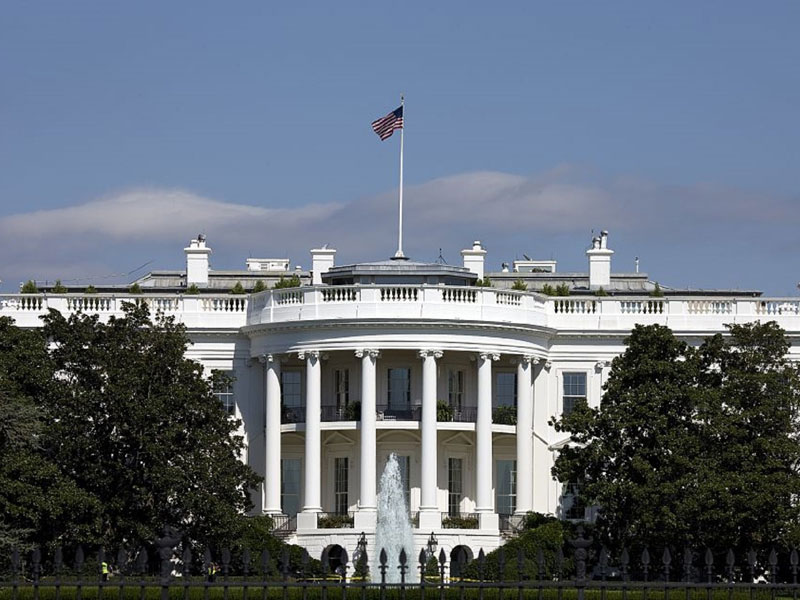Did the Cancer Moonshot Initiative Make 10 Years of Cancer Research Progress in 5 Years?

When the Obama administration announced the National Cancer Moonshot in January 2016, its goal was to invest $1 billion in cancer research to make a decade’s worth of discoveries in just five years. The funding was distributed across the National Institutes of Health, U.S. Food and Drug Administration, Department of Defense, and Department of Veterans Affairs to propel the Moonshot forward.
- Read more about Did the Cancer Moonshot Initiative Make 10 Years of Cancer Research Progress in 5 Years?
- Add new comment
Fear of Recurrence May Actually Contribute to Cancer Recurrence

Stress, such as fear and worry about cancer coming back or many other life burdens and concerns, may activate dormant cancer cells remaining in the body to form tumors again, researchers reported in Science Translational Medicine.
Don’t Get Trapped in the Pitfalls of Perfectionism

Having high expectations can motivate you to achieve your very best. In the extreme, however, aiming for perfection can be dangerous to your mental health. In a 2015 TED Talk, self-proclaimed perfectionist Petra Kolber passionately revealed that despite being at the top in her field in the fitness industry, she felt her best was never good enough and she lived a joyless life.
What the Evidence Says About Music Therapy for Cancer-Related Fatigue

Cancer-related fatigue is a serious, debilitating symptom that affects nearly 90% of patients following treatment, with the majority reporting the adverse event at moderate to severe levels. It can prolong hospital stays and limit patients’ ability to complete their treatments and resume daily activities, ultimately affecting quality of life and survival. Despite high prevalence rates, cancer-related fatigue was reported as “inadequately addressed” in findings from a large multisite study.
- Read more about What the Evidence Says About Music Therapy for Cancer-Related Fatigue
- Add new comment
Shared Governance Committees Empower Nurses to Use Their Voice

Oncology nursing awakens a sense of purpose that drives us to be true patient advocates. As chair of my institution’s shared governance committee, I have found that being conduits for our patients empowers nurses to find solutions that take care to the next level. It’s driven me to find better outcomes, care, and treatment for my patients simply because their health is important to me. I am at the bedside for my patients’ entire cancer journey.
HHS Releases National Strategic Plan to End HIV Epidemic

The two most recent administrations prioritized ending the HIV epidemic, which has claimed the lives of more than 700,000 Americans since the virus was first identified in the 1980s. To follow those initial efforts, the U.S. Department of Health and Human Services (HHS) released a strategic roadmap to end the HIV epidemic and reduce new HIV infections by 90% by 2030.
Management Strategies for Cutaneous Toxicity From EGFR Inhibitors

Epidermal growth factor receptor (EGFR)-targeted therapy is effective for several solid tumor malignancies, primarily non-small cell lung cancer with EGFR mutation and metastatic colorectal cancer. Although the agents spare patients from typical side effects seen with more conventional cytotoxic chemotherapies, such as nausea or vomiting, they do have a unique side-effect profile, including potentially dose-limiting cutaneous toxicity.
FDA Approves Tivozanib for Relapsed or Refractory Advanced Renal Cell Carcinoma

On March 10, 2021, the U.S. Food and Drug Administration (FDA) approved tivozanib (Fotivda®), a kinase inhibitor, for adult patients with relapsed or refractory advanced renal cell carcinoma following two or more prior systemic therapies. FDA approved the application three weeks ahead of its goal date.
- Read more about FDA Approves Tivozanib for Relapsed or Refractory Advanced Renal Cell Carcinoma
- Add new comment
First Lady Jill Biden Celebrates World Cancer Day

In honor of World Cancer Day on February 4, 2021, First Lady Jill Biden, EdD, took a virtual tour of the National Institutes of Health’s (NIH's) National Cancer Institute (NCI) and met with NIH Director Francis Collins, MD, PhD, and NCI Director Ned Sharpless, MD, to discuss advancements in cancer research, the steady decline in cancer mortality, and cancer-related legislation, among other topics.
Lung Cancer Screening Guidelines to Reduce Disparities May Increase Them Instead—But Risk Model Can Help

The draft 2020 U.S. Preventive Services Task Force (USPSTF) lung cancer screening recommendations were intended to increase the number of high-risk minorities eligible for lifesaving tests. And they do, but not as much as USPSTF anticipated, still leaving gaps and disparities, researchers reported in the Journal of the National Cancer Institute. They created a risk model to augment the guidelines that eliminated the disparities for most racial groups.





